The humanitarian conference for Sudan, which was hosted by France in Paris, has concluded. The conference, which was hosted in order to drum up funding for humanitarian initiatives in Sudan, witnessed mixed successes.
The Conference
On April 15th, 2024, the one year mark of the war in Sudan, France hosted a humanitarian conference. The conference was attended by representatives of 58 different nations, a number of different regional organization, leaders and representatives of a number of different UN programs, approximately 50 NGO’s both from Sudan and other countries, as well as several other entities.
The conference was hosted in order to raise funds for humanitarian initiatives in Sudan in response to a call by the UN for increased funding they had made in early February.
The UN was seeking a total of 4.1 billion USD, 2.7 billion for their ‘Humanitarian Needs and Response Plan’, which would target those inside Sudan, as well as 1.4 billion for the ‘Regional Refugee Response Plan’, which would target Sudanese refugees in five neighbouring countries.
The UN had announced that donors had only given 145 million USD, a mere 5% of what they needed for the Humanitarian Needs and Response Plan. They made an appeal for the funding due to their outstanding shortage.
Although a number of different countries made financial commitments in order to assist various UN organizations in their efforts, the conference fell far short of the UN’s funding goal. French President Emmanuel Macron announced that the conference had managed to gather over 2.1 billion USD. While the funding is likely to help greatly, it is distinctly less than the UN had called for in order to properly support its initiatives.
“This support will allow us to respond to the most urgent needs in the sectors of food and nutritional security, water, sanitation, education, and protection of the most vulnerable population” -French President Emmanuel Macron
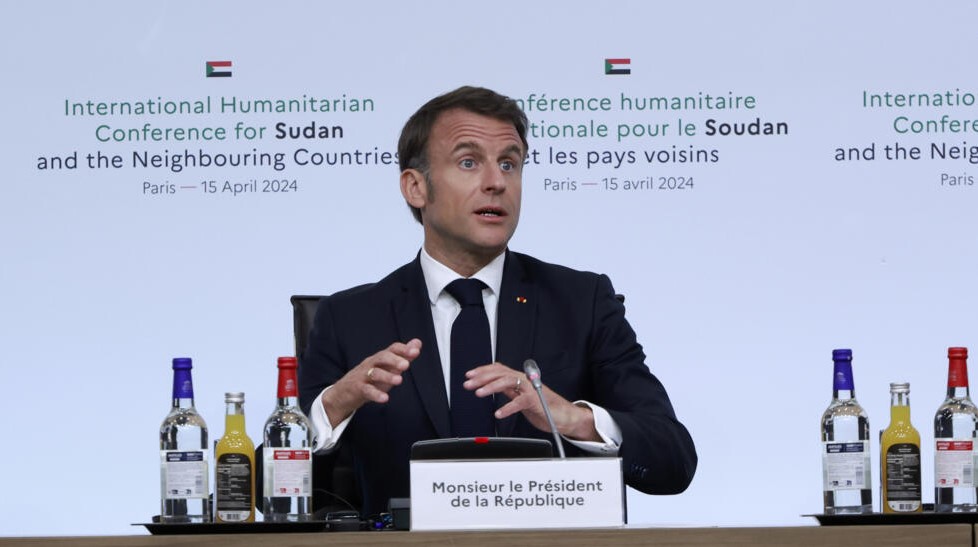
Of the 2.1 billion raised, nearly half, 956 million, came from the EU and its member states. The UK doubled its aid to Sudan to over 105 million, the US committed an additional 100 million, and Canada announced an additional 132.2 million CAD (approximately 96 million USD) in funding for Sudan and surrounding countries. Germany and the European Commission stood out, with Germany committing approximately 259 million USD, and the European Commission committing 377 million USD. Germany and the European Commission together make up more than half of the funding committed by the EU and its member states.
In addition to the funding, a statement from the conference also expressed a strong condemnation of “violence against civilians, including attacks on ethnic grounds, indiscriminate bombardment of residential areas and sexual and gender-based violence, including against children.”
The conference further urged for an end to the war, as well as for “efforts to ensure that Sudan does not become a forgotten crisis.”
The conference saw the presence of several notable regional organizations that are involved, in small part or large, in attempted peace processes. Namely, the conference was attended by the Intergovernmental Authority on Development (IGAD, an east African trade bloc of which Sudan is a member), the African Union (AU), as well as the Arab League, of which Sudan is also a member. Notably, Sudan has had its membership in the AU suspended, and itself suspended cooperation with IGAD in January.
Several representatives of various UN organizations were also in attendance, many of which are involved in humanitarian efforts in Sudan. The UN Secretary General’s Personal Envoy was in attendance, as were representatives from UNOCHA (United Nations Office for the Coordination of Humanitarian Affairs), the UNHCR (United Nations High Commissioner for Refugees), the WHO (World Health Organization), the WFP (World Food Programme), the IOM (International Organization for Migration), the UNFPA (United Nations Population Fund), as well as the UNDP (United Nations Development Programme).
The conference was also attended by representatives of the Red Cross, the World Bank, the International Monetary Fund, as well as the Arab Development Bank. As previously mentioned, approximately 50 NGO’s, both from Sudan and outside of Sudan, were present. Several Sudanese civilian groups, including Taqaddum, a civilian group that has attempted to negotiate peace processes in Sudan in the past.
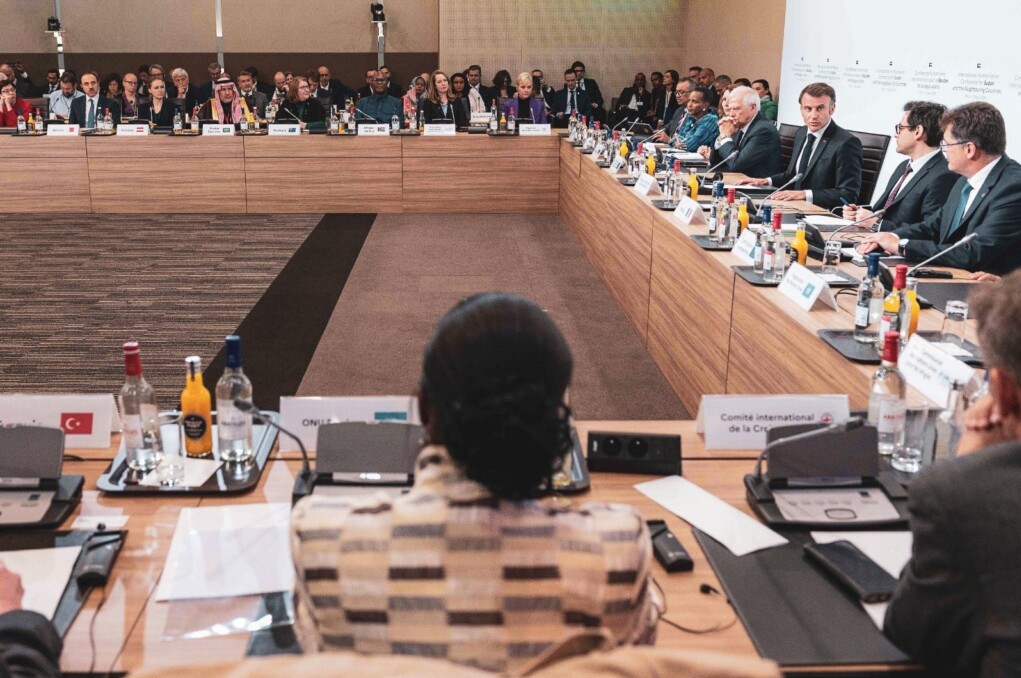
Prior to the conference, the Sudanese military government declared opposition to the conference, in particular critiquing the fact that they were not invited.
The Sudanese Ministry of Foreign Affairs released a statement in which it expressed “its utmost astonishment and condemnation” of the conference, condemning “that such a conference is convened on a matter concerning Sudan without consultation or coordination with its government and without its participation.”
Sudan’s ambassador to France, Khaled Farah, expressed similar sentiments, claiming that the conference will only serve to prop up the opposing Rapid Support Forces (RSF), the paramilitary group that the Sudanese military government has been at war with for almost a year.
The ambassador claimed the RSF would be “implicitly present and strongly participating in this conference, through political allies and sympathizers… such as the so-called Democratic and Civil Forces (Taqaddum) … and other non-governmental organizations, civil society groups, and representatives of some political organizations and individuals,” and that the conference would assist the RSF “under the pretext of concern for the tragedy of the Sudanese people.”
Barriers Remain
One of the greatest inhibitors to the UN’s humanitarian initiatives in Sudan was their supreme lack of funding. While funding issues remain, with them only hitting just above half of their funding goals with the Paris conference, there are also a number of other significant barriers that remain in the way of the UN and other humanitarian aid organizations operating in the area that prevent them from operating to their full capacity.
The UN has consistently spoken of heavy fighting around the country being one of the primary barriers in the way of delivering aid. Within Sudan, approximately five million people are experiencing emergency levels of hunger. Of this five million, the UN has said that approximately 90% are in areas that are simply inaccessible to the UN due to the fighting, leaving the majority of those worst hit without any aid at all. This figure of 90% has gone up over time, not down.
The issue is particularly bad around Khartoum, the Sudanese capital. The city is not fully under the control of either the Sudanese Armed Forces (SAF), or the paramilitary Rapid Support Forces. Fighting has been ongoing between the two sides over the city since the beginning of the war. Clashes erupt frequently within the city, and both sides launch strikes upon the other often, which regularly leads to civilian casualties and damages civilian infrastructure. Several million people resided within Khartoum before the war. While hundreds of thousands have fled, the city still maintains a significant civilian population, representing extensive humanitarian needs.
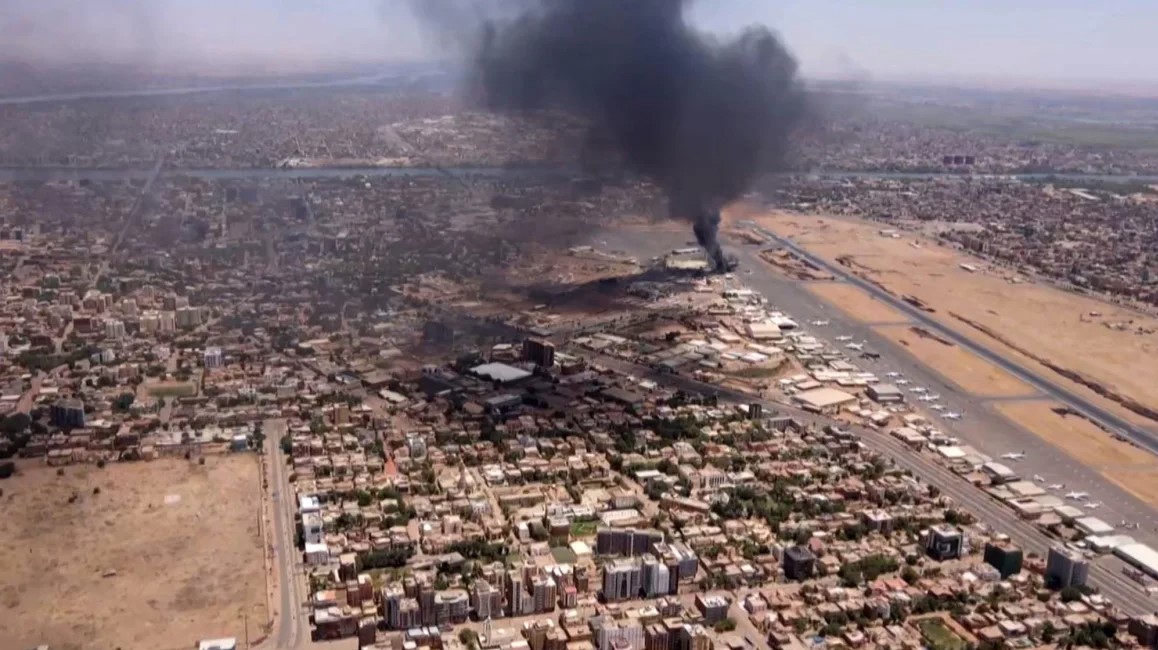
Darfur, in the west of the country, is also particularly hard hit. Darfur is controlled by the RSF, who has been accused of obstructing and even raiding aid shipments. Recently, the RSF was accused of blocking aid shipments from neighbouring Chad, after a number of aid organizations reported they were no longer allowed to deliver aid from Chad into Darfur. At a similar time, the SAF announced that they would begin to allow aid shipments through Chad and South Sudan, for the first time since the war had begun.
Recently, fighting has neared the North Darfur regional capital of El Fasher, which is still controlled by the SAF and SAF aligned militias. UN Secretary General, Antonio Guterres, has warned that any attack upon El Fasher “would be devastating for civilians and could lead to full-blown intercommunal conflict across Darfur.” Notably, El Fasher is a critical hub for the UN’s humanitarian operations in the region, and an attack on El Fasher would further complicate the UN’s humanitarian efforts.
In addition to the heavy combat, the UN has also consistently spoken of several bureaucratic impediments to delivering aid. The UN, and the Paris conference, called for the complete removal of any of these bureaucratic impediments, though they did not go into detail on what exactly the impediments were.
Canadian Sanctions
Joining the US and the EU, Canada on April 15th announced that they were implementing sanctions to several individuals and companies that are involved in the war on both sides.
Foreign Minister Melanie Joly announced the sanctions, which, along with the increased funding for the Paris conference, marked Canada’s first action taken on the Sudan war in several months.
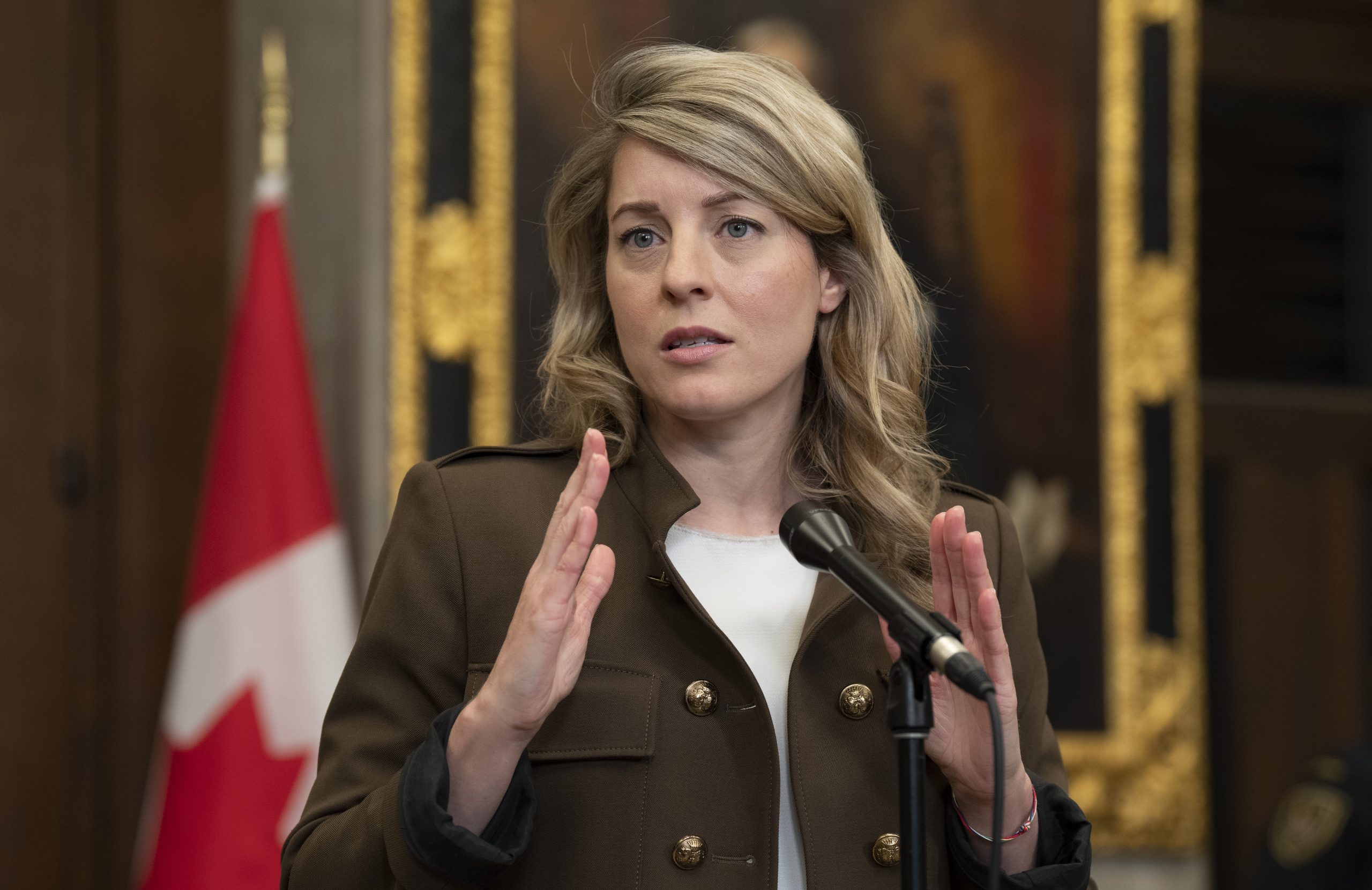
On the side of the RSF, Canada implemented sanctions on Abdelrahim Hamdan Dagalo, the Al Junaid Multi Activities Co. Ltd, as well as the GSK Advance Company Ltd.
Abdelrahim is a general within the RSF, and as the brother of RSF leader Mohamed ‘Hemedti’ Hamdan Dagalo, operated as a second in command of the RSF. Al Junaid and the GSK Advance Company actively procure weapons for the RSF, allowing them to continue their war efforts. Abdelrahim and these two companies have previously been sanctioned by both the US and the EU.
On the side of the SAF, Canada implemented sanctions on Defence Industries System, as well as the Zadna International Company for Investment Ltd.
Defence Industries System manufactures both weapons and vehicles for the SAF, whereas Zadna International Company has been described by the US Treasury Department as a “top earner” for the SAF, claiming they fund the SAF’s war effort, further adding that the SAF was using Zadna for money laundering.
Canada additionally sanctioned Ali Ahmed Karti, the former Minister of Foreign Affairs who is presently the Secretary General of the Sudanese Islamic Movement. Karti has been accused of organizing the Janjaweed, an Arab militia group in western Sudan that was an active participant in the Darfur genocide.
Ready for a Ceasefire
On the same day as the conference, and the one year anniversary of the Sudan war, RSF leader Mohamed ‘Hemedti’ Hamdan Dagalo released a video statement, in which he claimed the readiness of the RSF to establish a ceasefire in order to allow for humanitarian aid, and comprehensive peace talks.
“Our goal is a comprehensive political solution leading to a civilian government that guides the country towards democratic transition and lasting peace” -RSF leader Mohamed ‘Hemedti’ Hamdan Dagalo
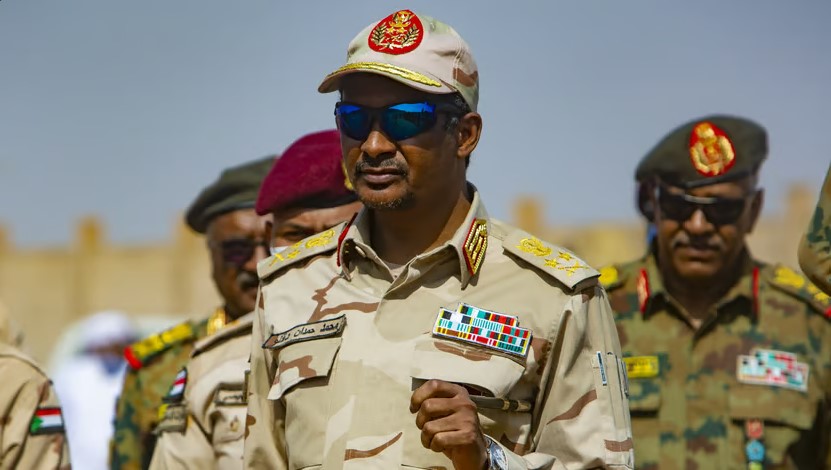
In his statement, Hemedti called for a political solution to the conflict, noting the destruction that the war has wrought across the country, particularly in and around Khartoum. He further spoke of the humanitarian crisis the country is experiencing, including the displacement crisis, and widespread human rights violations.
Also in his statement were Hemedti’s claims of several recent RSF victories. He claimed the RSF had halted an SAF offensive in Omdurman, as well as defeated both the SAF and aligned militias during combat in Sudan’s Sennar and Al-Jazeera states, claiming that the RSF had captured 118 combat vehicles in the recent fighting.
Hemedti further blamed the decay of previous peace processes on the SAF.
“While we sought peace in Jeddah, Kampala, and Manama, the army leadership, in coordination with old regime elements, was preparing for war by attacking our forces in Omdurman” -Mohamed ‘Hemedti’ Hamdan Dagalo
It is worth noting that the RSF has previously, on several occasions, announced their readiness to sign a ceasefire. However, despite their stated readiness for a ceasefire, they have yet to commit to any. The SAF has also not committed to any ceasefires, with both sides having violated several ceasefires and humanitarian pauses. It is also worth noting that the RSF has been accused of a number of human rights abuses. These two things cast doubts around the authenticity of Hemedti’s statement.
Several days ago the leader of the SAF, General Abdul Fattah al-Burhan, reiterated several preconditions for the SAF to even participate in ceasefire talks. Namely, he called for the withdrawal of the RSF from a number of different urban areas.
“Negotiations cannot proceed as long as hostilities continue and civilian areas in El Geneina, Nyala, Zalingei, Khartoum, El Daein, and the Al Jazirah cities remain occupied. If the rebels are serious about dialogue, they must first withdraw their forces from urban centres and relocate them to designated zones” -Sudanese military junta leader General Abdel Fattah al-Burhan
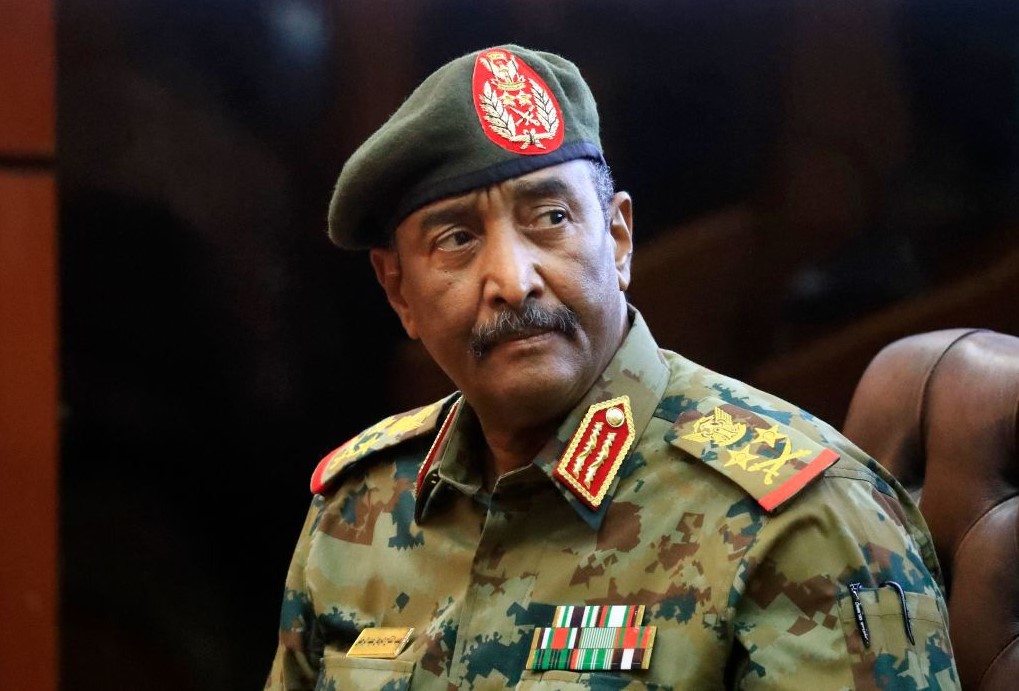
The statements from both leaders come as the US is attempting to restart peace talks in Jeddah, Saudi Arabia, aimed at bringing about an end to the war. There is no start date for when these talks will take place.
The War in Sudan: One Year Old
Sudan’s war has now hit the one year mark, having begun on April 15th, 2023. The war has seen significant portions of Sudan’s infrastructure damaged or destroyed, millions displaced, thousands killed, reports of rampant ethnic-based violence, and Sudan’s economy tank further than it already had been. The situation is worsened by the fact that Sudan had endured several years of civil conflict prior to the war’s beginning.
The war began between the SAF and the RSF due to disagreements on if/how the RSF should be integrated into the military, and power sharing agreements amidst the long process of transitioning into a civilian government.
Since the war’s beginning, Sudan has grown into the world’s largest internal displacement crisis. Approximately 8.5 million people are internally displaced within Sudan, the majority of whom (above six million) were displaced since the war began in April, with the remainder having been displaced in previous civil conflicts.
The 8.5 million are joined by nearly two million additional people that have fled Sudan completely, becoming refugees in neighbouring countries. This brings the total of displaced Sudanese civilians to approximately 10.5 million.
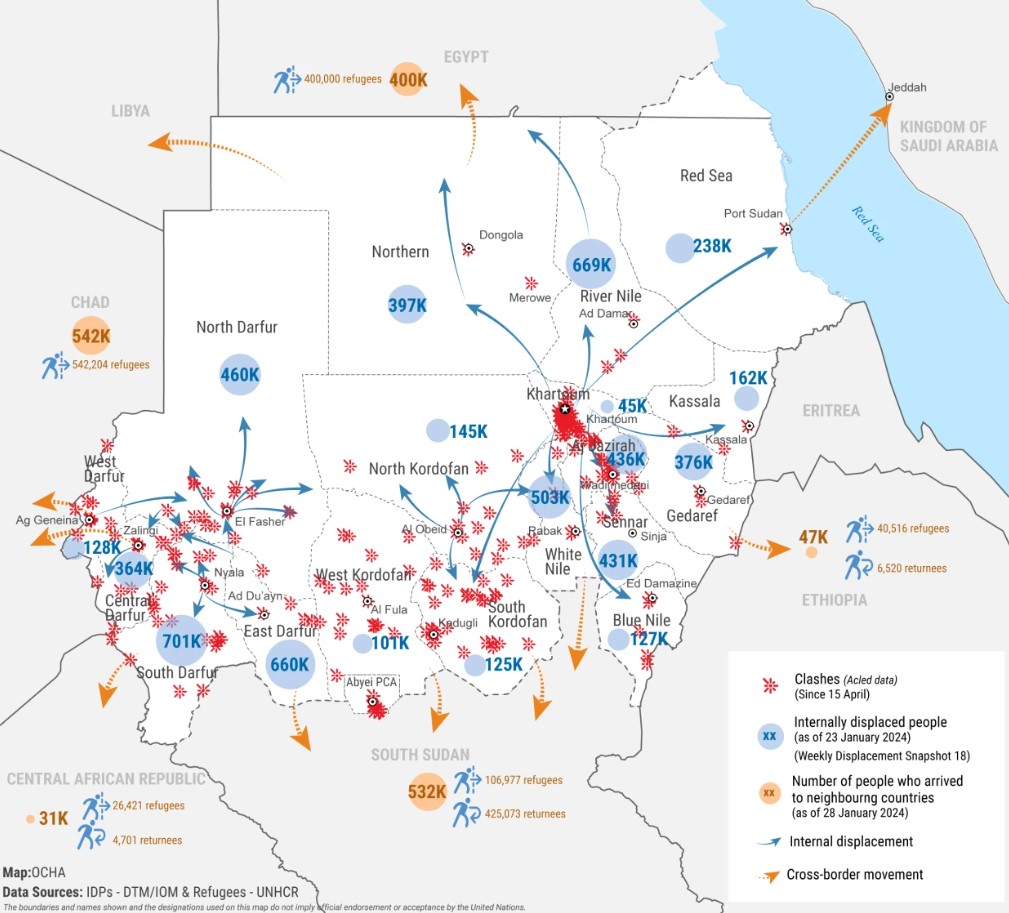
The war has also spawned with it an extensive humanitarian crisis. Prior to the war, significant portions of Sudan’s population were reliant upon humanitarian aid. Since the war began, this problem has only worsened, with approximately 18 million people within Sudan being food insecure. If Sudan, Chad, and South Sudan are grouped together, 25 million people are experiencing varying levels of food insecurity, representing a massive need for humanitarian aid.
Of Sudan’s 18 million, five million are experiencing emergency levels of hunger. The WFP has additionally stated that approximately 90% of those experiencing emergency levels of hunger are in areas that are simply inaccessible to the WFP, meaning they are going entirely without aid.
Due to the lack of humanitarian aid that is entering Sudan, the WFP recently warned that the hunger crisis the nation is experiencing is threatening to become the world’s largest. If it does, this would not be the first time Sudan has held this title, as the hunger crisis experienced in Darfur, western Sudan, was the largest in the world 20 years ago.
In addition to a lack of proper funding and the heavy fighting throughout the nation, the WFP has additionally stated that “insecurity, restrictions, threats, roadblocks, and bureaucratic impediments” further harm humanitarian aid efforts.
Footage of heavy clashes in Khartoum pic.twitter.com/dnvtQ8Gd0V
— GHMV2 (@GHMV2Research) April 15, 2023
Over the course of the war, at least 14,600 people have been killed. Casualty numbers are likely heavily underreported.
The war has been very costly in civilian casualties, with both sides attacks oftentimes leading to collateral deaths in civilian populations, particularly in and around Khartoum.
The UN has attributed ethnic violence to both sides, in particular to the RSF, who has reportedly carried out a number of massacres against civilian populations in Darfur. Darfur has a history of ethnic violence, and many of its populations have been targeted in Sudan’s previous conflicts as well.
The UN, as well as a number of different groups, have also reported rampant sexual violence.
While the war began between the RSF and the SAF, a number of different militias throughout Sudan have joined the fight on both sides. Most recently, the Joint Force of Armed Movements in Sudan, or the Joint Force, in northern Darfur announced the end to their neutrality in the war, and their allegiance to the SAF. The Joint Force is a grouping of several different Sudanese militias.
The Joint Force has vowed to defend El Fasher, the regional capital of North Darfur, as well as to actively defend humanitarian aid deliveries, attacking anyone who might try to obstruct them.
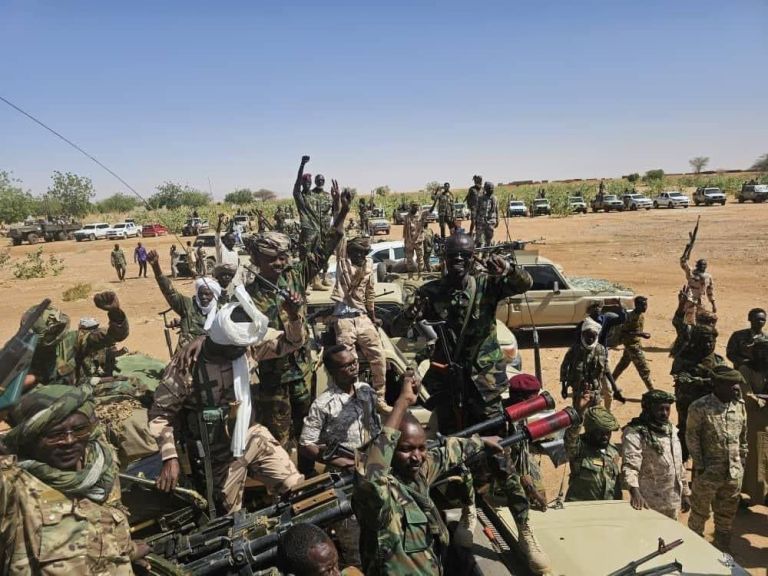
The entry of the Joint Force came after they claimed to have suffered attacks on their positions by the RSF, as well as the RSF had stated they may potentially block aid shipments to El Fasher on routes that they control.
The Joint Force is just one of many militias that have joined the war, as many fear the war could continue to expand and involve regional forces.


